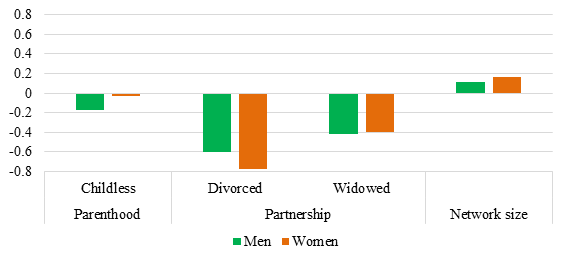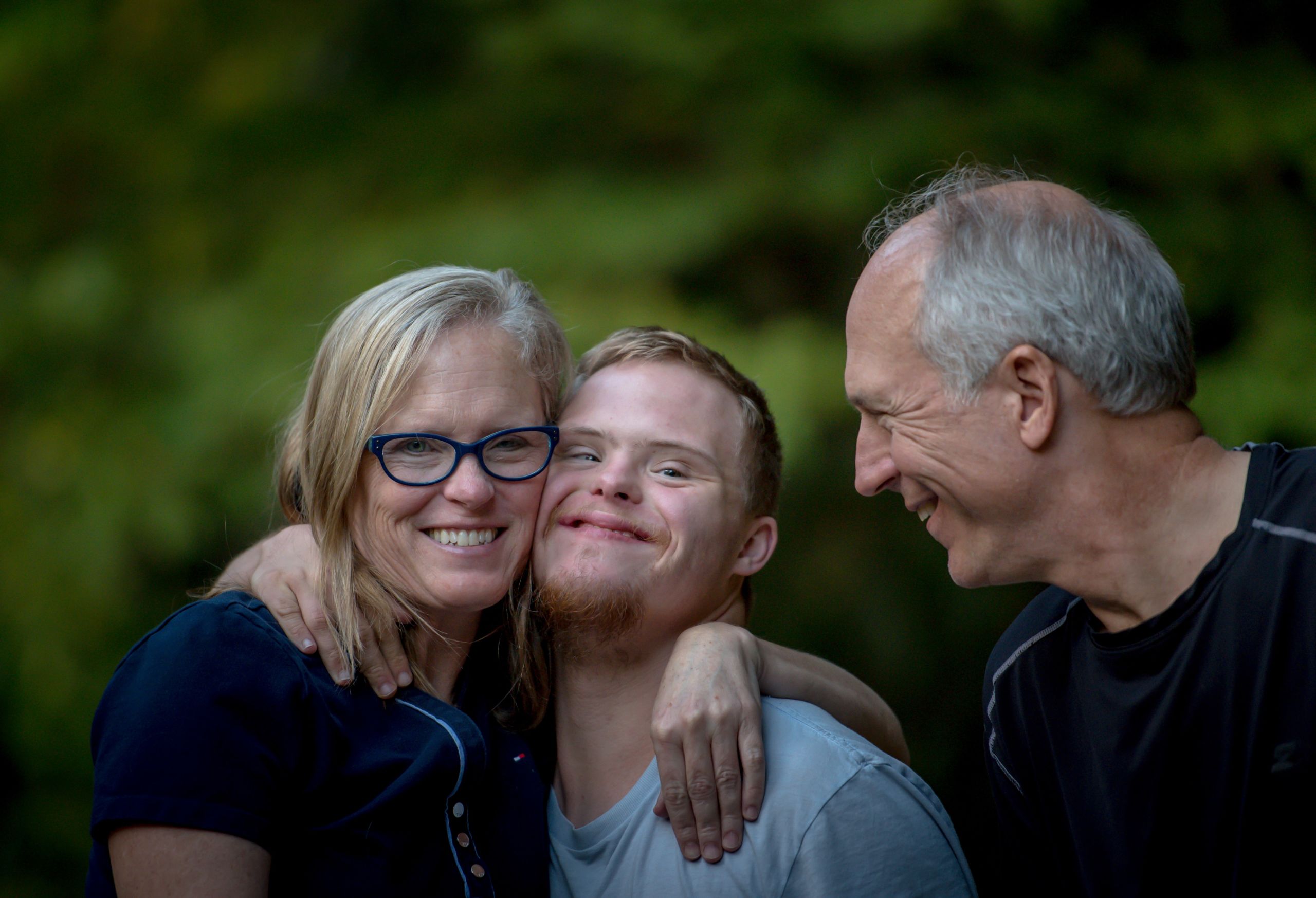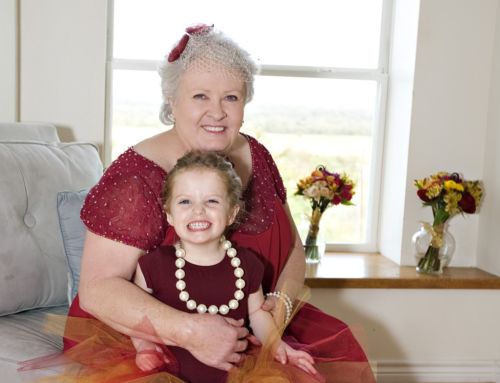Using SHARE data, this study investigates how older people’s quality of life is shaped by their family ties. We aim to understand whether having a partner and/or having children at older ages, for men and for women, affect their life evaluation, and second, whether social networks and social supports can mediate the effect of family situation.
Family life and family history play an important role in health conditions and in mortality differentials in later life. The relationship between family life and subjective indicators of well-being (i.e. life satisfaction) is an increasingly interesting issue in a context in which new family arrangements along with an aging population are undergoing important changes that could have an impact on people in their advanced stages, according to the life-course perspective. On one side, considering that spouses (and partners) are the most important source of care in old age (as shown by Bertogg and Strauss in this same blog), we want to know whether their presence does positively affect life evaluation. On the other side, we want to understand whether the implications of childlessness on social isolation and lack of support in their later life might imply an increasing demand for the public provision of long-term care services.
Our work is based on a cross-sectional analysis using data from the sixth (2015) wave of SHARE. We analyze a sample of women and men in 13 European countries (Austria, Belgium, Czech Republic, Denmark, Estonia, France, Greece, Germany, Italy, Spain, Slovenia, Sweden, Switzerland) who were aged 50 to 85 years of age and who lived with a partner (married or cohabiting) at the time of data collection or who currently did not have a partner but had ever been married (divorced and widowed). The reason to limit our analysis to ever married individuals is the strong association of never been married and childlessness: only 32% of never married individuals are parents while 93% of those who married are. The total sample consisted of 50,777 individuals (22,310 men and 28,467 women) born in 1965 or earlier with a certain variation of sample sizes varied by gender and country.
Our results show important differences on the average life satisfaction by gender across countries. Nordic countries not only showed the highest average levels of life satisfaction but also presented more gender-balanced scores while Eastern and some Southern European countries reported the lowest average scores for life satisfaction and they had higher gender differences. We also detected substantial differences across countries in the levels of childlessness but fewer variations in the proportion of individuals who don’t have a partner (despite important difference by sex in the proportions of widowed and divorced individuals). As shown in Figure 1, our findings also indicate that in all countries, having no partner, both divorced and widowed, has the strongest and most negative association with life satisfaction. However, there was no clear association between not having children and life satisfaction across countries. Our results also demonstrate that in most of these European countries, having a strong network significantly increase one’s life satisfaction.

Note: 13 European countries are included: Austria, Belgium, Czech Republic, Denmark, Estonia, France, Greece, Germany, Italy, Spain, Slovenia, Sweden, Switzerland. This linear regression model also controls for age groups, education level.
Overall the dimension of one’s network and currently having a partner are the key consistent factors that are associated with the degree of life satisfaction, while having children is less important. Therefore, we find a relationship between family ties and life satisfaction but restricted to the marital status. This finding goes along with previous results and can reduce the concern on younger cohorts about the long-run implications of their following the trend to remain childless as it does not appear that they are at any greater risk of social isolation.
Having a partner is a greater protector of life satisfaction at older ages than is having children. This finding can reduce the concern about the long run implications of increasing childlessness among younger cohorts as it is not necessarily associated to a higher risk of low life satisfaction.
About the authors:
Aïda Solé-Auró, DemoSoc Research group, Department of Political and Social Sciences, Universitat Pompeu Fabra, Barcelona
Clara Cortina, DemoSoc Research group, Department of Political and Social Sciences, Universitat Pompeu Fabra, Barcelona
The article is based on:
Solé-Auró, A., Cortina, C. (2019) “Exploring the role of family ties on life satisfaction in later life in Europe”, Journal of Family Research, 31(2). DOI: https://doi.org/10.3224/zff.v31i2.04











Leave A Comment